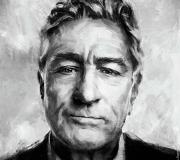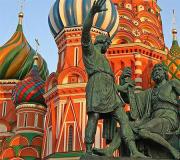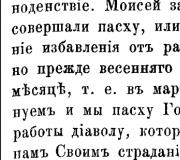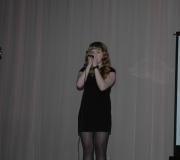Why did Dubrovsky allow himself luxurious whims? An essay on the topic “The love story of Masha and Vladimir” based on the work of A.S. Pushkin “Dubrovsky
The main character of A. S. Pushkin’s story “Dubrovsky” is a young gentleman, whose image is shown in development. A whole series of events from the life of Vladimir Dubrovsky passes before our eyes, and gradually we learn a lot of new things about him.
We meet Vladimir in Chapter III and learn that he “lost his mother from an early age,” almost did not know his father, from the age of eight he was brought up in the Cadet Corps (a closed military school for the children of nobles) and “was released as a cornet into the guard.” His father spared no money for his decent maintenance, and Vladimir led the life in St. Petersburg that was accepted in his circle: he was wasteful, allowed himself luxurious whims, played cards and “went into debt,” not caring about the future, hoping sooner or later to find a rich woman. bride. But one day he received a letter from home with alarming news, and from that day his life changed dramatically. Despite the fact that Vladimir knew his father little, he was “romantically” attached to him and was ready to resign for his sake. Arriving home, Vladimir found his father in a deplorable state, things were neglected, and no one could give him the necessary explanations. The period for filing an appeal has expired, and Kistenevka was transferred to Troekurov. The judges, who arrived to “take possession” of the new master, behaved rudely and disrespectfully towards young Dubrovsky. And then the courtyard servants came to his defense. A riot was brewing. Vladimir himself was seething with indignation, but, despite his youth, he possessed
prudence, he was respected, his opinion was listened to. He managed to extinguish the first outbreak of indignation among the peasants, but subsequent events forced him to commit acts that led him onto the path of a defender of the oppressed, a people's avenger.
Such changes occurred due to experiences associated with the loss of his father, the loss of all property and the monstrous injustice of Troekurov. Communication with peasants helped him a lot. But, despite the fact that Vladimir’s lifestyle has changed, he does not break ties with his class and does not take the path of consistent struggle. From the very beginning, Dubrovsky does not share the rebellious activity of the peasants and recognizes the struggle against injustice through the means of education and humanity, and not through an armed popular uprising, which is why his connection with the peasants was short-lived.
Vladimir's character has many positive traits. He is well educated, honest, decisive and decent, has dexterity and courage, and is capable of strong, deep feelings. But we also see the duality of Dubrovsky’s character. For example, he immediately turned into Deforge as soon as he saw and fell in love with Masha Troekurova (the daughter of his enemy), and abandoned the thought of revenge, although the reasons that prompted him to take revenge on the offender were very serious. The author gave Vladimir the features of a hero of an adventure and knightly novel. Dubrovsky finds himself in unusual situations and behaves unusually in them. He also has the features of a romantic hero of a love story: he sends Masha mysterious notes, uses the hollow of an old oak tree as a mailbox, gives a ring warning of danger, and meets a wedding carriage in a deep forest. All this makes the image of Vladimir Dubrovsky not entirely realistic, but still he remains very interesting, because he is a hero of a new type, which is revealed in situations typical for life and literature of that time.
Some time passed, and poor Dubrovsky’s health was still poor; True, the attacks of madness did not recur, but his strength noticeably weakened. He forgot his previous studies, rarely left his room and thought for whole days. Egorovna, the kind old woman who once looked after his son, now became his nanny. She looked after him like a child, reminded him of the time of food and sleep, fed him, put him to bed. Andrei Gavrilovich quietly obeyed her and, apart from her, had no relations with anyone. He was unable to think about his affairs, economic orders, and Egorovna saw the need to notify young Dubrovsky, who served in one of the guards infantry regiments and was at that time in St. Petersburg, about everything. So, tearing off a sheet from the account book, she dictated a letter to the cook Khariton, the only Kistenev literate person, which she sent to the city post office that same day. But it’s time to introduce the reader to the real hero of our story. Vladimir Dubrovsky was brought up in the Cadet Corps and was released as a cornet into the guard; his father spared nothing for his decent maintenance, and the young man received more from home than he should have expected. Being wasteful and ambitious, he allowed himself luxurious whims; He played cards and went into debt, not caring about the future and envisioning sooner or later a rich bride, the dream of his poor youth. One evening, when several officers were sitting with him, lounging on sofas and smoking from his ambers, Grisha, his valet, handed him a letter, whose inscription and seal immediately struck the young man. He quickly opened it and read the following:“You are our sovereign, Vladimir Andreevich, I, your old nanny, decided to report to you about daddy’s health! He is very bad, sometimes he starts talking, and sits all day like a stupid child - but in the stomach and in death, God is free. Come to us, my bright falcon, we will send you horses to Pesochnoe. I hear that the zemstvo court is coming to us to hand us over to Kiril Petrovich Troekurov because we, they say, are theirs, and we have been yours from time immemorial, and have never heard of that. You could, living in St. Petersburg, report this to the Tsar-Father, and he would not give us offense. I remain your faithful slave, nanny
Orina Egorovna Buzyreva.
I send my maternal blessing to Grisha, is he serving you well? It’s been raining here for about a week now, and the shepherd Rodya died around Mikolin Day.” Vladimir Dubrovsky re-read these rather stupid lines several times in a row with extraordinary excitement. He lost his mother from an early age and, almost not knowing his father, was brought to St. Petersburg in the eighth year of his age with all that, he was romantically attached to him and loved family life the more, the less he had time to enjoy its quiet joys. The thought of losing his father painfully tormented his heart, and the situation of the poor patient, which he guessed from his nanny’s letter, terrified him. He imagined his father abandoned in a remote village, in the hands of a stupid old woman and servants, threatened by some kind of disaster and dying without help in physical and mental torment. Vladimir reproached himself for criminal negligence. For a long time he did not receive letters from his father and did not think to inquire about him, believing him to be traveling or doing household chores. He decided to go to him and even resign if his father’s painful condition required his presence. His comrades, noticing his concern, left. Vladimir, left alone, wrote a request for leave, lit a pipe and plunged into deep thoughts. That same day he began to bother about a vacation and three days later he was already on the high road. Vladimir Andreevich was approaching the station from which he was supposed to turn onto Kistenevka. His heart was filled with sad forebodings, he was afraid of not finding his father alive, he imagined the sad way of life awaiting him in the village, wilderness, desolation, poverty and troubles with business in which he knew no sense. Arriving at the station, he went to the caretaker and asked for free horses. The caretaker inquired where he needed to go and announced that the horses sent from Kistenevka had been waiting for him for the fourth day. Soon the old coachman Anton, who once drove him around the stable and looked after his little horse, came to Vladimir Andreevich. Anton shed tears when he saw him, bowed to the ground, told him that his old master was still alive, and ran to harness the horses. Vladimir Andreevich refused the offered breakfast and was in a hurry to leave. Anton took him along country roads and a conversation began between them. Tell me, please, Anton, what business does my father have with Troyekurov? And God knows, Father Vladimir Andreevich... The master, listen, did not get along with Kiril Petrovich, and he filed a lawsuit although he is often his own judge. It’s not our serf’s business to sort out the master’s wills, but by God, your father went against Kiril Petrovich in vain, you can’t break a butt with a whip. So, apparently, this Kirila Petrovich does what he wants with you? And of course, master: listen, he doesn’t give a damn about the assessor, the police officer is on his errands. The gentlemen come to pay homage to him, and to say that it would be a trough, but there will be pigs. Is it true that he is taking away our property? Oh, master, we heard so too. The other day, the Pokrovsk sexton said at the christening of our elder: you have enough time to walk; Now Kirila Petrovich will take you into his hands. Mikita the blacksmith said to him: and, that’s it, Savelich, don’t be a godfather’s sadness, don’t trouble the guests Kirila Petrovich is on his own, and Andrei Gavrilovich is on his own, and we are all God’s and sovereign’s; But you can’t sew buttons on someone else’s mouth. So, you don’t want to go into Troyekurov’s possession? In possession of Kiril Petrovich! God forbid and deliver: he sometimes has a bad time with his own people, but if he gets strangers, he will tear off not only the skin, but also the meat from them. No, may God grant Andrei Gavrilovich a long life, and if God takes him away, we don’t need anyone but you, our breadwinner. Don’t give us away, and we will stand for you. At these words, Anton waved his whip, shook the reins, and his horses began to run at a fast trot. Touched by the devotion of the old coachman, Dubrovsky fell silent and again indulged in reflection. More than an hour passed, suddenly Grishka woke him up with the exclamation: “Here is Pokrovskoe!” Dubrovsky raised his head. He rode along the shore of a wide lake, from which a river flowed and meandered between the hills in the distance; on one of them, above the dense greenery of the grove, towered the green roof and belvedere of a huge stone house, on the other, a five-domed church and an ancient bell tower; Scattered around were village huts with their vegetable gardens and wells. Dubrovsky knew these places; he remembered that on this very hill he played with little Masha Troekurova, who was two years younger and then already promised to be a beauty. He wanted to ask Anton about her, but some shyness held him back. Arriving at the manor's house, he saw a white dress flashing between the trees of the garden. At this time, Anton hit the horses and, obeying ambition, common to both village coachmen and cab drivers, he set off at full speed across the bridge and past the village. Having left the village, they climbed the mountain, and Vladimir saw a birch grove and to the left, in an open place, a gray house with a red roof; his heart began to beat; in front of him he saw Kistenevka and his father’s poor house. Ten minutes later he drove into the master's courtyard. He looked around him with indescribable excitement. For twelve years he did not see his homeland. The birches that had just been planted near the fence during his time had grown and now became tall, branchy trees. The yard, once decorated with three regular flower beds, between which there was a wide road, carefully swept, turned into an unmown meadow on which a tangled horse was grazing. The dogs started to bark, but when they recognized Anton, they fell silent and waved their shaggy tails. The servants poured out of the people's faces and surrounded the young master with noisy expressions of joy. It was all he could do to force his way through their zealous crowd and ran up onto the dilapidated porch; Egorovna met him in the hallway and hugged her pupil with tears. “Great, great, nanny,” he repeated, pressing the kind old woman to his heart, “what’s up, father, where is he?” what is he like? At that moment, a tall old man, pale and thin, in a robe and cap, entered the hall, moving his legs with force. Hello, Volodka! he said in a weak voice, and Vladimir passionately hugged his father. The joy produced too strong a shock in the patient, he weakened, his legs gave way under him, and he would have fallen if his son had not supported him. “Why did you get out of bed,” Egorovna told him, “you can’t stand on your feet, but you strive to go where people go.” The old man was carried into the bedroom. He tried to talk to him, but his thoughts were confused in his head, and the words had no connection. He fell silent and fell into a sleepy state. Vladimir was amazed at his condition. He settled down in his bedroom and asked to be left alone with his father. The household obeyed, and then everyone turned to Grisha and took him to the people's room, where they treated him like a villager, with all possible cordiality, tormenting him with questions and greetings.Last week, a friend called me, all exhausted and tortured: for a week she and her sixth-grader son could not write an essay on “Dubrovsky.” I asked for help... To my shame, I haven’t read Dubrovsky. I didn’t read anything from the school curriculum at all, except for “The Master and Margarita.” Total for all 10 classes - only one book by Bulgakov...
Meanwhile, all my essays, without exception (!), were “A”. I can’t imagine how this happened:) And my literature teacher, Lyudmila Ivanovna, seeing my excellent written ideas and considering me a literary flea, therefore never asked verbally. That’s how all 10 school years I had an “A” in literature. And she went to the diploma, yes, sir...
Returning to “Dubrovsky”: it was 10 pm, and my dear, beloved friend, so there was nothing to do - I went to my favorite lib.ru to look for “our everything.” I skimmed the last two chapters of the work, read the plot on Wikipedia, and wrote an essay. The next day, my friend’s son brought home an “A” in literature (which I had no doubt about).
I’m posting it here in case some other cub might find it useful. Use it! If necessary, I’ll spank you again...
***
"Dubrovsky". Attack on the wedding train. Illustration: D. Shmarinov
An essay about
« The love story of Masha and Vladimir"
(based on the work of A.S. Pushkin “Dubrovsky”)
“Bear with dignity what you cannot change.”
Lucius Annaeus Seneca
On the pages of the story by A.S. Pushkin's "Dubrovsky" I met two romantic heroes - Masha Troekurova and Vladimir Dubrovsky. The destinies of these heroes have a lot in common: they are approximately the same age, both lost their mothers early, and grew up as the only children in the family.
Masha “grew up in the eyes of her parent,” “her father loved her madly.” Masha was meek, modest, obedient.
Vladimir Dubrovsky was raised in the Cadet Corps from the age of eight, from where he joined the guard as a cornet. Lived in St. Petersburg. “Being wasteful and ambitious, he allowed himself luxurious whims; played cards and went into debt, not caring about the future, and envisioning sooner or later a rich bride, the dream of his poor youth.” However, having learned from the nanny that his father was bad, he immediately dropped everything and went home. Appearing in the house, he decided to take revenge on the master Kirill Petrovich Troekurov, who, by vile deceit, took away the Kistenevka estate from Vladimir’s father, Andrei Gavrilovich Dubrovsky.
Heading to his sick father, Vladimir saw Masha and fell in love. In an effort to be closer to her, Dubrovsky ended up in the Troyekurovs’ house under the guise of a French teacher, Deforge. In the house, he was treated with respect as a teacher, especially after the incident when Vladimir, due to a cruel joke from the owner of the house, found himself locked in the same room with a bear. And if before everyone who was laughed at so much fell into fear, then Vladimir, on the contrary, showed courage and determination in this situation. He defeated the angry bear.
Before the incident with the bear, Masha, despite Vladimir’s kind disposition towards her, treated him coolly. She did not pay “any attention to the young Frenchman..., the teacher was for her a kind of servant or artisan, and the servant or artisan did not seem like a man to her.” Meanwhile, the brave act of Vladimir, who did not lose his head in the fight with the bear, and his words that he does not intend to endure an insult for which, due to his rank, he cannot demand satisfaction, made a strong impression on the young lady. For the first time, she looked at Vladimir not as a servant, but as a gentleman worthy of respect, and perhaps even love. Masha “saw that courage and proud pride do not exclusively belong to one class - and from then on she began to show the young teacher respect, which became more attentive hour by hour.” We can say that it was the story with the bear, in which Vladimir showed all the strength of his spirit and strong character, that became the beginning of his mutual love with the young lady.
Dubrovsky is honest. He openly admitted to Masha that he was a robber, and at the same time promised to be devoted to her and offered his help.
Meanwhile, Masha’s father, Kirill Troekurov, decided to marry his daughter to a middle-aged prince. Masha, in love with Vladimir, was, of course, against the marriage, but because of her modesty she could not openly contradict her father. And then the case came when Masha decided to use Dubrovsky’s help. She waited for salvation from him until the very last moment. Even during the wedding in the church, Masha still hoped for Vladimir’s help. Help came, but too late... By the time Dubrovsky arrived to help along with his robber friends, Masha was already married and became the wife of the prince she did not love. Despite her feelings for Dubrovsky, Masha did not change the oath she took in the church. Accustomed to obedience, modest and reserved, she answered Vladimir like this: “I swore an oath, my prince, my husband, order him to be released and leave me with him. I didn't cheat. I waited for you until the last minute... But now, I tell you, it’s too late.” Realizing that her fate was decided, that Dubrovsky could not help her, and that she would forever become the wife of another, Masha did not rush away at the first opportunity. She met her new life with dignity, accepting both her father’s will and marriage.
And Vladimir himself also resigned himself to fate, meeting Masha’s refusal with dignity and no longer insisting on her release. He again retreated into the forest, to his fellow robbers, and then completely disappeared abroad.
This is how the love story of Masha and Vladimir began and ended.




